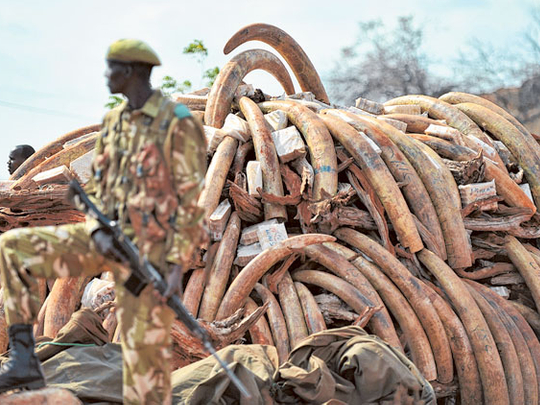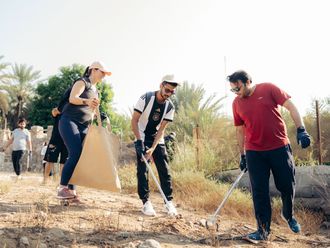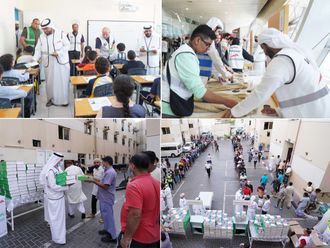
Dubai: An environment campaign to enhance international efforts to combat the smuggling of elephant ivory tusks is under way by the Dubai Police General Command, represented at the General Administration of Airport Security and in cooperation with the International Fund for Animal Welfare (IFAW) Dubai.
The police awareness campaign was launched at the Departure hall in Building-3 of Emirates Airlines in Dubai’s International Airport and Transit lounges.
The new campaign is part of an ongoing bid by Dubai authorities to clamp down on the illegal shipment of elephant tusks from Africa to the Far East.
According to IFAW, in early November 2013, Dubai customs intercepted a shipment of 215 elephant tusks worth an estimated $4 million and en route from Kenya to Hong Kong.
The tusks were seized after being discovered in bags marked as red beans, said IFAW.
Although international trade in ivory tusks was banned in 1989, ivory remains in high demand in Far East leading to the continued slaughter of elephants in the Africa region. By some estimates, up to 750,000 elephants were killed for their tusks in the 1980s leaving a population of 600,000 at the dawn of the 1990s decade when the ban was brought into effect.
Major General Pilot Ahmad Bin Mohammad Al Thani, Director of the Dubai Police Airport Security Department, affirmed the importance of the environment campaign to save elephants which are under immense poaching pressure in Africa for their ivory tusks.
He said police are working to bolster their partnerships with international bodies in regard to the plight of elephants worldwide.
He also praised the fast response received from Dubai airport and the IFAW, an international organization which collects data regarding the illegal killing of elephants to smuggle their ivory tusks.
He added that allowing any sort of trade in ivory is meaningless because it contradicts all principles of preserving species subjected to possible extinction.
Maha Oda, a spokesperson with IFAW in the Middle East and Africa, said on the IFAW website that an IFAW campaign held earlier this year in the UAE aimed to create awareness among school children about the mass slaughter of elephants for underworld trade internationally.
“Every year, thousands of elephants are being killed just for their tusks and it has become necessary to take serious and effective steps toward protecting elephants from this deadly threat. One of these steps is to increase youth awareness and education about animal welfare and conservation,” Maha said.
“That’s what the International Fund for Animal Welfare’s (IFAW) office in Dubai did. In collaboration with the UAE Ministry of Education (MoE), in January 2013 we launched “Big Trunks Tiny Tales” this year’s Animal Action Education program.” Maha said that with support from the ministry, thousands of IFAW’s educational resources were delivered to UAE schools (except Abu Dhabi Emirate). The program was designed to educate 40,000 students ages 6-8 years old about elephants and conservation.
“We are proud to continue our partnership with MoE for a second year, helping us raise youth awareness for critical elephant conservation - a cause that needs immediate action,” Maha said.












